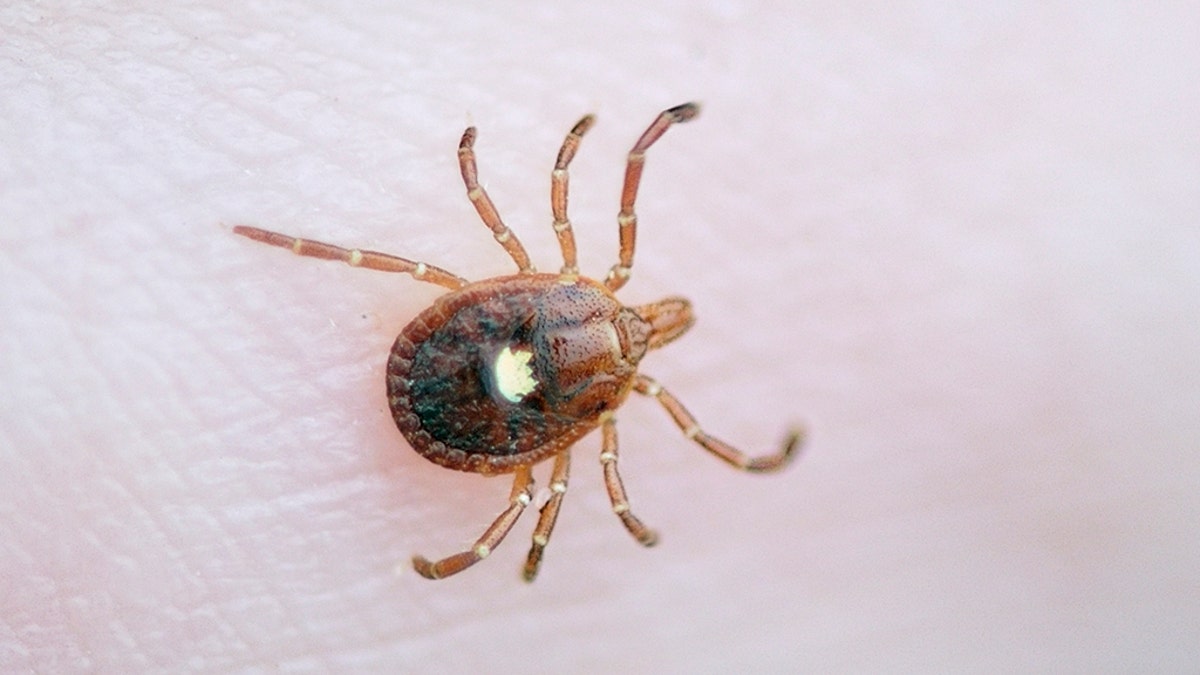
A Lone Star tick. (iStock)
Ticks are known to carry some nasty ailments, such as Rocky Mountain spotted fever and Lyme disease. But one allergist and associate professor of medicine at University of North Carolina, Chapel Hill, is warning that some of these small arachnids — specifically the Lone Star tick — can cause another issue as well: an allergy to red meat.
While the allergy caused by a Lone Star tick bite is relatively rare, the number of cases has sharply increased from the roughly two dozen Dr. Scott Commins and his colleagues first studied in 2009, he told Fox News.
Commins, who was one of the first physicians to discover the connection between Lone Star tick bites and the alpha-gal meat allergy, estimated that there are currently more than 5,000 cases in the U.S, with additional cases in countries such as Sweden and South Africa. There are 30,000 reported cases of Lyme disease in the nation each year, according to the Centers for Disease Control and Prevention (CDC).
ARKANSAS WOMAN DEVELOPS 'DEADLY' MEAT ALLERGY AFTER TICK BITE
Commins identified a few factors that may explain the increase.
First, doctors can now perform a blood test that detects the allergy, “which has made the diagnosis much easier,” he said.
Additionally, the “range of the Lone Star tick is increasing and expanding,” Commins said, which ultimately increases the chance of getting bitten. Higher costs of living could partly be to blame, causing more people in recent years to trade urban life for the suburbs. This movement results in closer contact with tick-carrying deer, which subsequently increases the chance for tick bites.
Lastly, Commins said a heightnened awareness about the allergy has led those with symptoms to talk to their doctor and investigate if a Lone Star tick bite could be the cause.
With tick-borne diseases on the rise, here’s what you need to know about the red meat allergy and how Lone Star ticks — named for the white spot on the back of adult females — are possibly to blame.
How do Lone Star tick bites result in a meat allergy?
In short: Scientists and physicians aren’t exactly sure.
“[We’re] not sure if the tick is causing the disease because of an infectious organism or not, but we have made the association with tick bites,” he said, adding that the tick’s saliva could be a factor.
“There’s a common pathogen in all of these ticks,” he said. “It could be a protein or enzyme in tick spit. We’re working on that in the lab at the moment.”
Commins also suspects the allergy could have less to do with the tick itself and more about the tick’s host.

A map showing where Lone Star ticks are commonly found in the United States. (CDC)
CDC: INFECTIONS FROM TICKS, MOSQUITOES SURGE IN US
There’s a chance there could be a “subtle mutation of a protein in a skin” that makes certain people bitten by a Lone Star tick more susceptible to developing the allergy, he explained.
In other words, “there are 5,000 estimated cases in the U.S. Based on those odds, only a fraction of people develop the allergic response to red meat.”
If you’re bitten by a Lone Star tick, however, don’t panic: it’s not a guaranteed you’ll develop the allergy. In fact, Commins called the chance “unlikely.”
What are the symptoms?
Not unlike the symptoms of a peanut, egg, tree nut or a shellfish allergy, many people who are allergic to red meat may experience hives, a skin rash or anaphylaxis.
Commins warned that many also experience “severe GI [gastrointestinal] distress,” such as stomach pain, indigestion, vomiting and diarrhea. Some people have described their gastrointestinal symptoms as “stabbing pain or [being stuck with] a hot poker,” he added.
Unlike those with a peanut or egg allergy, among others, the symptoms of a red meat allergy are not immediate. In fact, Commins said, it usually takes hours after eating red meat for the symptoms to appear.
DOZENS DEVELOP RARE EYE CANCER IN A CASE THAT'S BAFFLING DOCTORS
“If you wake up in the middle of the night with bad abdominal pain, you don't think food allergy,” he said, explaining that the gastrointestinal symptoms can mimic those of a kidney stone or gallstones. This can lead to a misdiagnosis, leading some patients in extreme situations to have their gallbladder removed.
“The patients feel like they’re cured at first, and then the next time they eat red meat it happens again,” he said.
Is it treatable?
While Commins said researchers are working on a cure or treatment plan, there is no cure currently available for those who are diagnosed with an alpha-gal meat allergy.
The most those with the allergy can do is to avoid red meat, which includes beef, lamb, pork, veal, goat, among others.
The news isn’t all bad, though.
WOMAN'S HOME INFESTED WITH TICKS AFTER 85 ARE FOUND ON FAMILY DOG
“There is a bright spot in this; this is one of these food allergies that will resolve over time,” he said, though he noted that additional tick bites may prolong the condition.
Commins explained that the allergy cells responsible for the red meat allergy don't usually become long-lasting memory cells, unlike those associated with peanut and tree nut allergies.
“The allergy can go away, it’s not a lifelong thing,” he said.








































